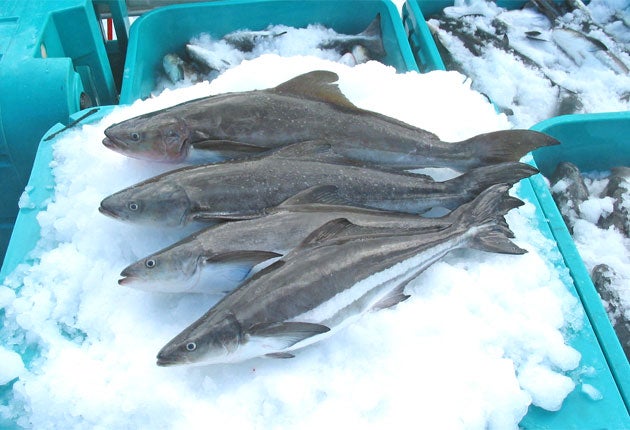Will cobia be the fish of the future?
The fishing industry needs new frontiers to provide for the increasing global demand of fish, but is this mild white fish the answer?

It is a high quality white fish with a mild flavour, it grows three times faster than Salmon, it can be farmed consistently all year round – and you’ve probably never heard of it.
Its name is cobia and it could be the answer to the world’s fish shortage, according to the founder and CEO of the world’s largest open-ocean fish farm.
Also known by its Latin name Rachycentron Canadum, cobia is a very versatile fish; it can be grilled or eaten raw as sushi or sashimi, and it’s rich in Omega-3s.
Brian O’Hanion first stumbled across cobia in 2007 when he established his Panama-based farm Open Blue and immediately started the operations to produce and sell this innovative fish worldwide.
With the world’s wild stocks in decline due to the over-exploitation of ocean fisheries, sustainability was at the base of his project.
Fish are harvested at a faster rate that they can actually recover. To increase production they are kept in cages at very high fish densities, which results into outbreaks and unsustainable concentration of waste.
WWF estimates that stock of all species currently fished for food are likely to collapse by 2048, unless a change in the production techniques is made.
O’Hanion’s idea with his cobia aquaculture was to pursue a more eco-friendly approach to fish farming that could still benefit the increasing demand of fish worldwide and promote a valid alternative to an industry that is exhausting its resources.
“Cobia is a great, high quality white fish. The upscale segments of the market desperately need a high quality white fish that is farmed consistently,” O’Hanion told an online seafood specialist.
Breeding cobia far out at sea, in its natural habitat, means more space for the fish to grow, less populated pens and a reduced risk of a spread of diseases.
O’Hanion told The Ecologist: “We think we're farming fish in a more natural way by moving farms into an environment that is better for the fish, with cleaner water and more natural exchange.”
Even Jamie Oliver was inspired by cobia and used it as secret ingredient at the US cooking show Iron Chef America in 2008, when competing against Chef Mario Batali. He named his brand new recipe 'Cobia a la Tony Blair'.
The Norwegian aquaculture Marin Farms first launched cobia onto the UK market in 2010 but sales did not meet the company’s early expectations. People’s unfamiliarity with the species and its cost, slightly higher than Atlantic salmon, were thought to be the main reasons.
Cobia’s greatest challenge today remains marketing. Few people know about its existence. On a 20 fish item menu, with options such as cod, salmon or sea bass, cobia would not be a costumer’s first choice.
O’Hanion is conducting a very determined marketing operation to establish cobia in the fish industry, increase stock exports to Europe and Asia and promote more sustainable fish farming practices.
“What we are trying to do takes a lot of capital and commitment, you need to be able to think long term about this, at least 20 years into the future,” O’Hanion said in a recent interview with National Geographic.
Whether this visionary and ambitious plan will feed the world without misusing it, we still shall see.
Join our commenting forum
Join thought-provoking conversations, follow other Independent readers and see their replies
Comments
Bookmark popover
Removed from bookmarks